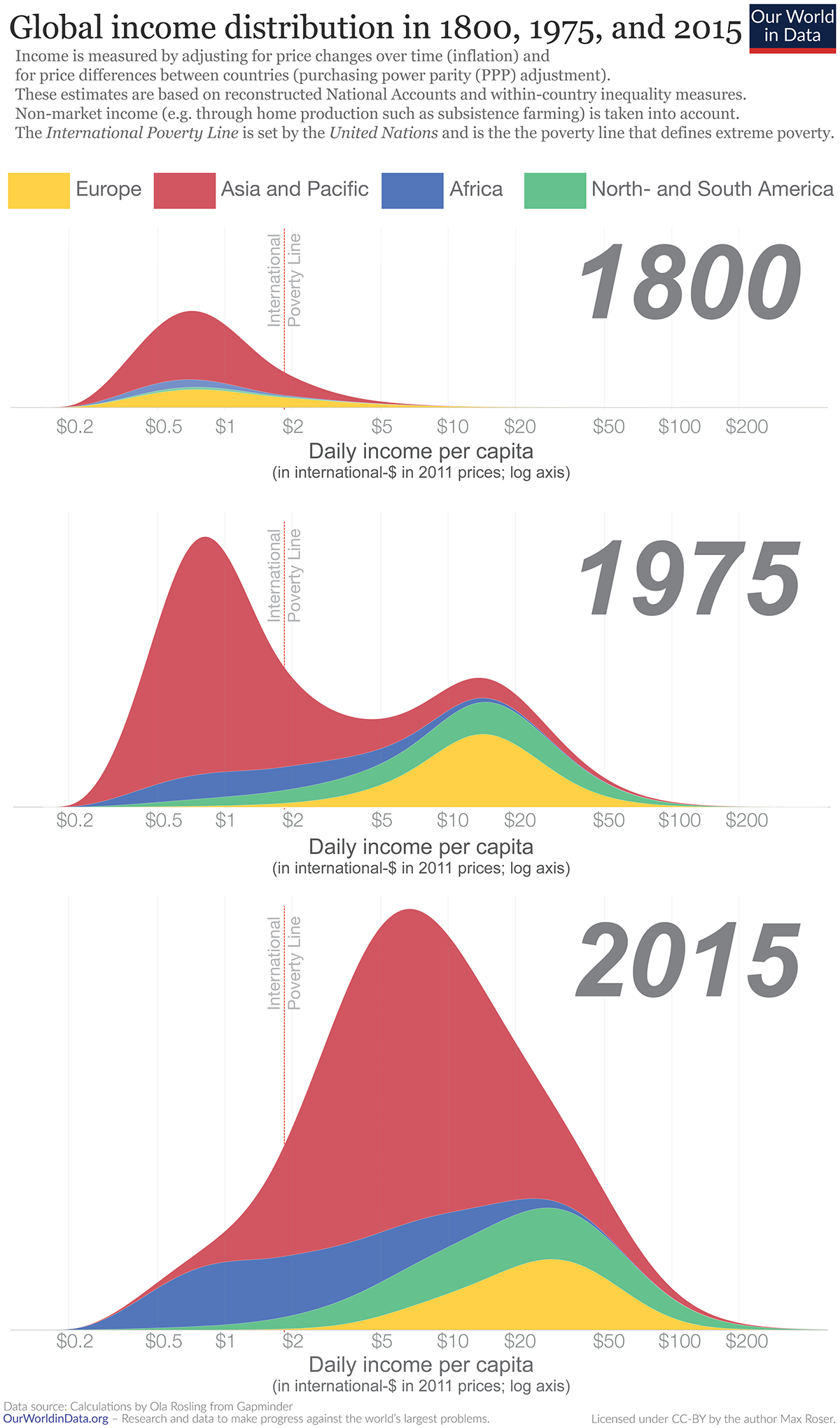Five decades on from Populorum Progressio, have we achieved one world?
SUGGESTED



“You go to New England, Ohio, Pennsylvania …manufacturing is down 30, 40, sometimes 50 per cent. NAFTA is the worst trade deal maybe ever signed anywhere.”
And left-wing Democrat presidential hopeful Bernie Sanders has said:
“I do not believe in unfettered free trade … We heard people tell us how many jobs would be created … you are now competing against people in Vietnam who make 56 cents an hour minimum wage.”
Interestingly, Pope Paul VI back in 1967 wrote in Populorum Progressio:
“Trade relations can no longer be based solely on the principle of free, unchecked competition, for it very often creates an economic dictatorship”.
These sentiments are all quite similar – they are based on the assumption that very different parties trading leads to one party losing and the other gaining, or one party exploiting the other. Pope Paul was saying that the poor nations lose from free trade. Sanders and Trump are saying that the rich nations lose from globalisation. All three are denying, or at least playing down, the mutual gains from trade.
Pope John Paul II, it is worth noting, expressed the opposite view, perhaps referring back obliquely to earlier Church teaching, he wrote in the papal encyclical, Centesimus annus:
“Even in recent years it was thought that the poorest countries would develop by isolating themselves from the world market and by depending only on their own resources. Recent experience has shown that countries which did this have suffered stagnation and recession, while the countries which experienced development were those which succeeded in taking part in the general interrelated economic activities at the international level.”
Empirically, this is certainly true. It is not unreasonable to say that the last 30 years or so have led to more people being pulled out of poverty than in the previous 6,000 years of economic history put together. That has happened predominantly in countries which, as John Paul II put it, took part “in the general interrelated economic activities at the international level”.
It is easy to forget how important an achievement pulling so many people out of poverty is. For most of human history, 80 per cent of the human race have lived one bad harvest away from malnutrition. Indeed, most British Catholics are Catholic and in Britain because of the failure of potato harvests in Ireland which reduced its population by up to 25 per cent. This was only a generation before many of our great grandparents whom we might well be able to remember. Life at the margins of malnutrition was the norm and now is not.
Pope Francis has recognised the success of globalisation in pulling people out of poverty. However, in common with documents produced by the former Pontifical Commission for Justice and Peace, he has suggested that globalisation has led to greater inequality. For example, in Evangelii guadium he said:
“I recognize that globalization has helped many people rise out of poverty, but it has also damned many others to starve to death. It is true that global wealth is growing in absolute terms, but inequalities have also grown and new poverty arisen.”
Surveys suggest that most of the British population, including of graduates, are largely ignorant of the progress to which globalisation has led. However, when it comes to the question of inequality, it is difficult to find anybody at all who believes that global inequality is falling. Not only is global inequality falling, it is falling for the first time in modern industrial history and this fall in inequality has been coincident with the modern era of globalisation. The main reason is because formerly poor countries are growing much faster than rich countries – especially those formerly poor countries that are taking part in the process of globalisation. This graph from Max Roser’s website, Our World in Data, showing the global distribution of incomes at three dates perhaps illustrates the point best:

In 1800, the distribution of world incomes was relatively even, but almost everybody was below the absolute poverty line. By 1975, some people had become very rich. You can see why so many Christians joined “Third World First” or “One World” societies when they were at university. It looked as if we lived on two separate planets. Such bimodal distributions of income are unusual. We had the rich world to the right of that diagram, the poor world to the left and the communist world somewhere just to the right of the poor world. No wonder we had this focus on the need for development in so many encyclicals from Populorum Progressio onwards. Fast forward to the current time (2015) and it looks as if we all live on the same planet again, as in 1800. Only this time nearly everybody is earning above the poverty line. This trend of falling inequality will almost certainly continue until 2035 at least.
It is difficult to believe that Christians who campaigned on development issues could have imagined that there would be so much progress – though not necessarily as a result of the policies that they promoted. Not only have huge numbers of people been taken out of poverty, but the world has become much more equal.
Of course, there are questions about globalisation that should be discussed in Catholic social thought. Pope Francis has raised the cultural question as noted above. We can also ask how close development has been to the concept of integral human development that the Catholic Church demands: this will be the subject of another post. Meanwhile, though, the fact that poverty has fallen, almost every indicator of development has improved and the world has become so much more equal should give pause for thought amongst those who are quick to criticise globalisation. As far as material development is concerned, what Pope Paul VI demanded has happened. Prudence demands that, if we are making policy recommendations based on Catholic social thought, the fruits of globalisation should be recognised.
This article was originally published on the Catholic Social Thought website.




